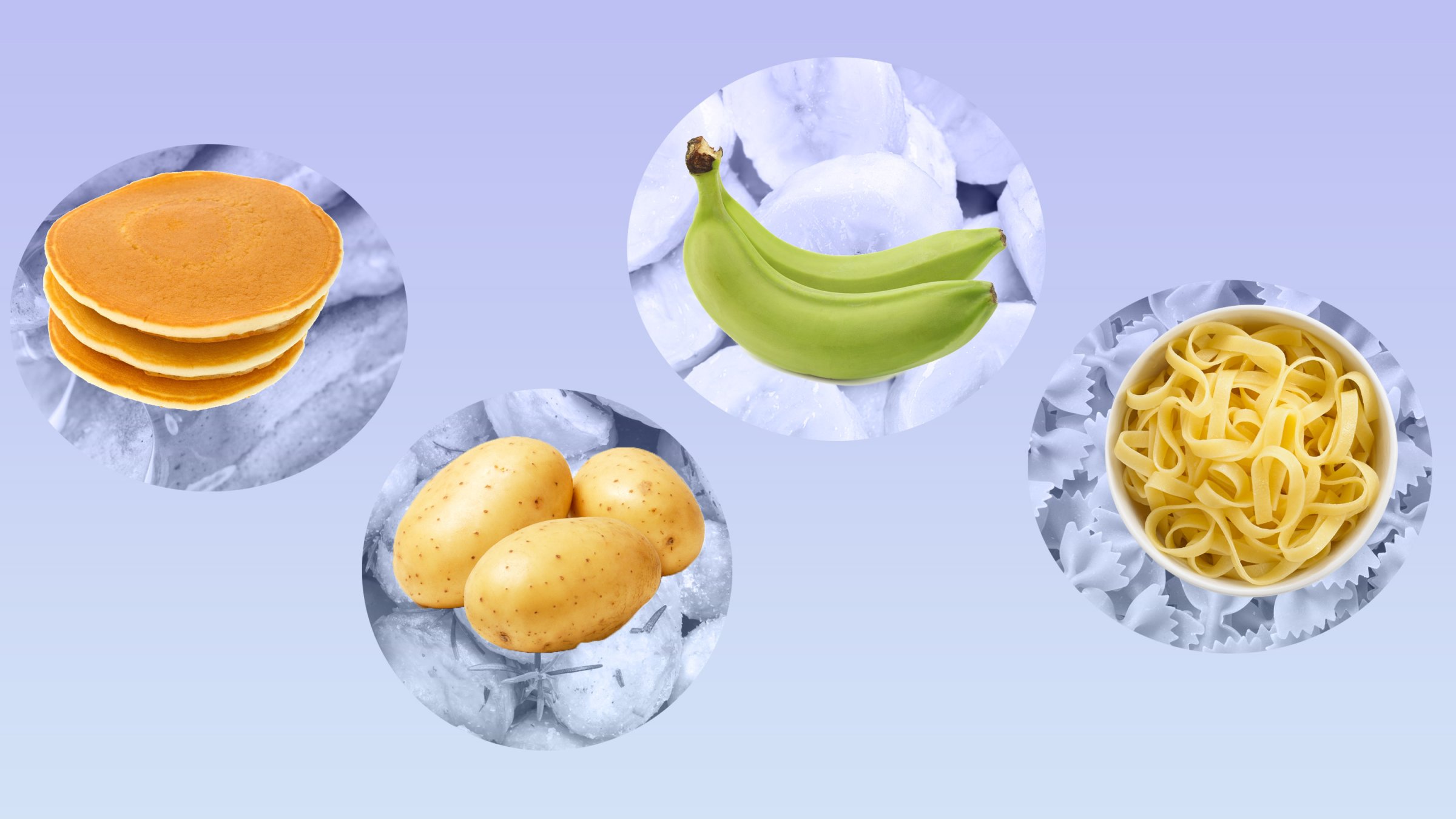
Not all carbs are created equal — and thank goodness for that. New research suggests that a certain kind of carbohydrate called resistant starch may improve health by keeping you full, checking blood sugar and supporting the gut.
Resistant starch, a special type of fiber found in potatoes, bananas, chickpeas, grains and other foods, is the focus of a new study in the journal Nutrition Bulletin. Researchers from the British Nutrition Foundation and University College Dublin, in Ireland, analyzed everything published research has shown about the health benefits of resistant starch, and found more than a few reasons to fill up.
Eating resistant starch may support gut health and increase feeling of fullness, according to the studies reviewed. There’s also some evidence that eating resistant starch can counteract the negative health effects of eating a lot of red meat on colorectal cancer risk, though the study authors say more research is needed to understand these potential health claims.
The reason resistant starch seems to be so uniquely healthy is likely because of the way it’s digested. The starch bypasses the small intestine, the site of digestion for most food, and is instead metabolized in the colon. It’s then fermented and becomes short-chain fatty acids that provide energy. Short-chain fatty acids, which can act as gut-healthy prebiotics, have been linked to a lower risk of inflammation-related diseases like diabetes and heart disease.
In one small study of 10 people reviewed in the new report, healthy adults ate crackers containing about 30 grams of a type of resistant starch for about three weeks, and a couple weeks later they ate crackers without the starch. The study authors found that even during the short study period, eating crackers with resistant starch increased healthy gut bacteria and lowered the levels of less healthy types.
“Resistant starch appears to aid blood glucose control and may confer other health benefits,” says study author Stacey Lockyer, a nutrition scientist at the British Nutrition Foundation. “This is an exciting area for future research. Overall, regular consumption of a variety of fiber-rich foods is important.”
The new findings don’t offer an excuse to overload on carbohydrates like white bread and pasta, though they also contain some resistant starch. “Wholegrain varieties of foods tend to contain higher amounts of resistant starch—and other fiber types—than ‘white’ versions of these foods,” says Lockyer. “We know that adequate intake of dietary fiber overall is important for achieving a healthy, balanced diet and reduces the risk of developing a range of chronic diseases including colon cancer, type 2 diabetes and heart disease.”
More Must-Reads From TIME
- The 100 Most Influential People of 2024
- Coco Gauff Is Playing for Herself Now
- Scenes From Pro-Palestinian Encampments Across U.S. Universities
- 6 Compliments That Land Every Time
- If You're Dating Right Now , You're Brave: Column
- The AI That Could Heal a Divided Internet
- Fallout Is a Brilliant Model for the Future of Video Game Adaptations
- Want Weekly Recs on What to Watch, Read, and More? Sign Up for Worth Your Time
Contact us at letters@time.com